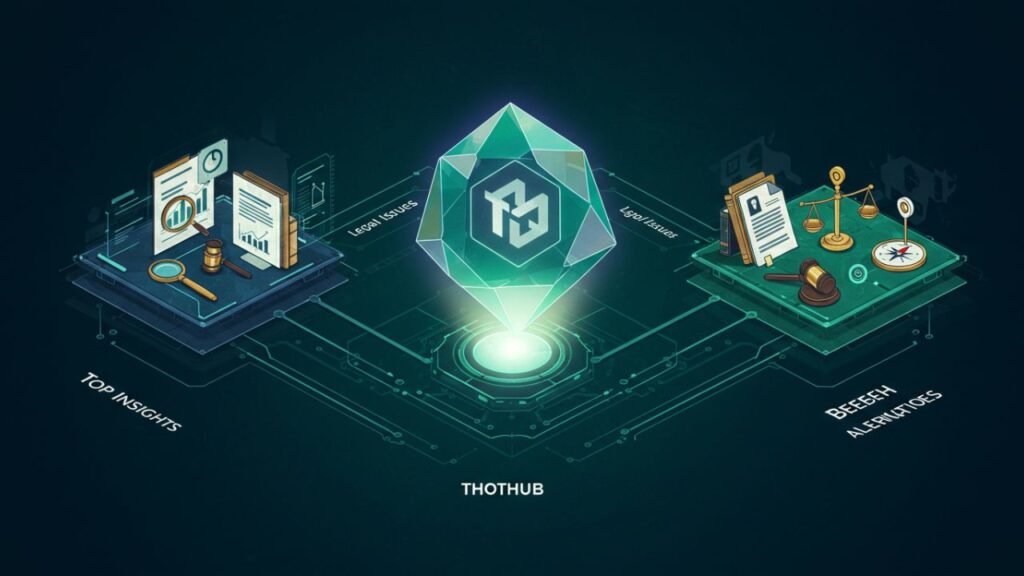Thothub, once a notorious platform for sharing premium content from subscription-based creators without consent, caused a major stir in the online adult community. It became infamous for hosting explicit materials, often taken from platforms like OnlyFans, and publishing them without the creators’ permission. Due to growing concerns about copyright violations, personal privacy, and ethical issues, the site was eventually taken down. However, discussions about Thothub continue to circulate widely—raising questions about digital rights, legal consequences, and what platforms have emerged in its place.
This article dives deep into what Thothub was, how it operated, and its eventual demise. It also offers a fresh look at the ethical landscape surrounding adult content platforms, creator rights, and the best safe, legal alternatives for users and creators alike.
Thothub Content Platform Overview
Thothub operated in a gray zone of the internet. Primarily known for aggregating and sharing adult content scraped or leaked from various subscription-based platforms, it attracted a massive user base. The idea was simple: users uploaded photos and videos from popular content creators—often without permission—and others could freely download or view them.
Unlike ethical content-sharing sites that enforce copyright and platform rules, Thothub quickly became a hub for pirated material, raising serious questions about digital consent and the monetization of creator content.
Why Thothub Became So Popular
Several factors contributed to Thothub’s meteoric rise in popularity:
-
Free access to premium content: Many users flocked to the site to avoid paying subscription fees.
-
Anonymity: The platform allowed users to upload and download content with little to no identity verification.
-
Lack of moderation: Content was rarely, if ever, removed unless legally compelled.
-
Viral discussions: Online forums and social media spread its name like wildfire.
The site’s popularity was, however, a double-edged sword. It attracted attention from content creators, legal experts, and eventually law enforcement.
Legal Controversies Around Thothub
Thothub walked a thin legal line. By hosting and distributing pirated adult content, it violated numerous digital copyright laws and infringed on personal privacy. Many creators, especially those on platforms like OnlyFans and Patreon, filed DMCA takedown requests, but these were often ignored.
Eventually, in 2020, the site was taken offline after multiple legal complaints. Authorities and anti-piracy groups worked in tandem to identify the individuals responsible for running the site. This case served as a wake-up call for digital content pirates and proved that there are real-world consequences for such actions.
Thothub and the Ethics of Content Sharing
The existence of platforms like Thothub highlighted a major ethical dilemma in the digital age: Is content truly private if it’s online?
Content creators, particularly in the adult industry, face consistent threats to their work’s integrity. Subscription-based platforms promise privacy and control—but Thothub and similar sites broke that trust.
The key ethical issues include:
-
Violation of consent
-
Loss of creator income
-
Mental health impact on creators
-
Encouragement of further piracy
Impact on Content Creators
Thothub’s existence had a profound effect on digital creators. Many suffered financially due to the loss of exclusive content revenue. Even more disturbing were the psychological and emotional impacts of having their private content leaked and distributed without permission.
Some creators reported being doxxed, stalked, or harassed after their content appeared on Thothub. This led to increasing calls for stricter laws and better digital protections for content creators.
The Shutdown of Thothub
After years of operating in the shadows, Thothub was officially shut down in August 2020. The decision came following a growing number of DMCA complaints, mounting pressure from legal teams, and public outcry.
The shutdown was celebrated by many, particularly within the adult creator community. It marked a significant step toward creating safer, more ethical online spaces for creators.
What Replaced Thothub?
Despite its shutdown, many clone sites and similar platforms popped up in its wake. However, they often lacked the same scale, usability, and infamy. Users searching for “Thothub alternatives” often ended up on platforms that were either unsafe, illegal, or simply lacked proper moderation.
Some of the popular and legal alternatives where creators maintain control include:
-
OnlyFans
-
Fansly
-
Patreon
-
JustForFans
These platforms prioritize creator rights and enforce strict copyright compliance.
How to Protect Yourself From Leaks
If you’re a content creator, here are some essential steps to protect your content:
-
Watermark your content
-
Use reverse image searches to find stolen content
-
Submit DMCA takedown requests promptly
-
Track IP and usage analytics
-
Collaborate with digital rights management services
The most effective protection comes from staying informed and being proactive about digital rights.
Is Sharing Content from Thothub Illegal?
Yes. Sharing or downloading content from sites like Thothub constitutes copyright infringement and potentially violates revenge porn laws, depending on the jurisdiction. The legal penalties can include heavy fines, lawsuits, or even jail time.
Thothub’s Legacy in Internet Culture
Despite its problematic nature, Thothub left a lasting impact on internet culture. It exposed flaws in digital security, raised awareness about the rights of adult content creators, and sparked debates around online privacy.
For better or worse, Thothub became a turning point in how we think about content sharing in the digital era.
How Platforms Are Responding to Piracy Today
In response to incidents like Thothub, many subscription platforms have bolstered their piracy defenses:
-
AI-powered content tracking
-
Multi-level authentication
-
Watermarking and geo-blocking
-
Collaborations with cybersecurity firms
These tools are becoming standard practice to protect creators and their livelihoods.
The Role of Law Enforcement
Cybercrime units worldwide are taking content piracy more seriously. From tracking illegal streaming services to cracking down on stolen content repositories, law enforcement agencies are allocating more resources to fight digital crimes like those facilitated by Thothub.
Thothub and the Rise of Ethical Subscriptions
The backlash against Thothub also gave rise to a new wave of platforms emphasizing ethical content sharing, respect for consent, and transparency in business models.
Platforms like Fansly, ManyVids, and FanCentro are gaining traction for their commitment to user safety and content authenticity.
Best Thothub Alternatives That Are Legal
If you’re looking for content in a legal and respectful way, consider:
-
OnlyFans – Direct support to creators.
-
Fansly – Similar to OF but often with better creator tools.
-
ManyVids – Offers individual purchases and subscriptions.
-
AdmireMe – Gaining popularity in the UK.
All of these platforms require creators to verify identity and control distribution, making them safer and more ethical.
How to Report Stolen Content
If you spot stolen content or your own work on a suspicious platform:
-
Use the DMCA takedown process
-
Contact hosting providers
-
Report to Google for content removal from search
-
Notify cybersecurity firms or legal teams
Timely reporting can help remove pirated material and potentially shut down illegal operations.
Digital Rights Advocacy Post-Thothub
Following Thothub’s demise, several advocacy groups emerged to support digital creators. Organizations like:
-
The Cyber Civil Rights Initiative
-
EFF (Electronic Frontier Foundation)
-
Content Creators Coalition
These groups work to defend online privacy, promote ethical tech, and provide legal support.
Final Thoughts
Thothub may be gone, but the issues it exposed still persist. As online content becomes more accessible, so too must the safeguards protecting it. Creators deserve platforms that honor their work, uphold their rights, and support their growth.





